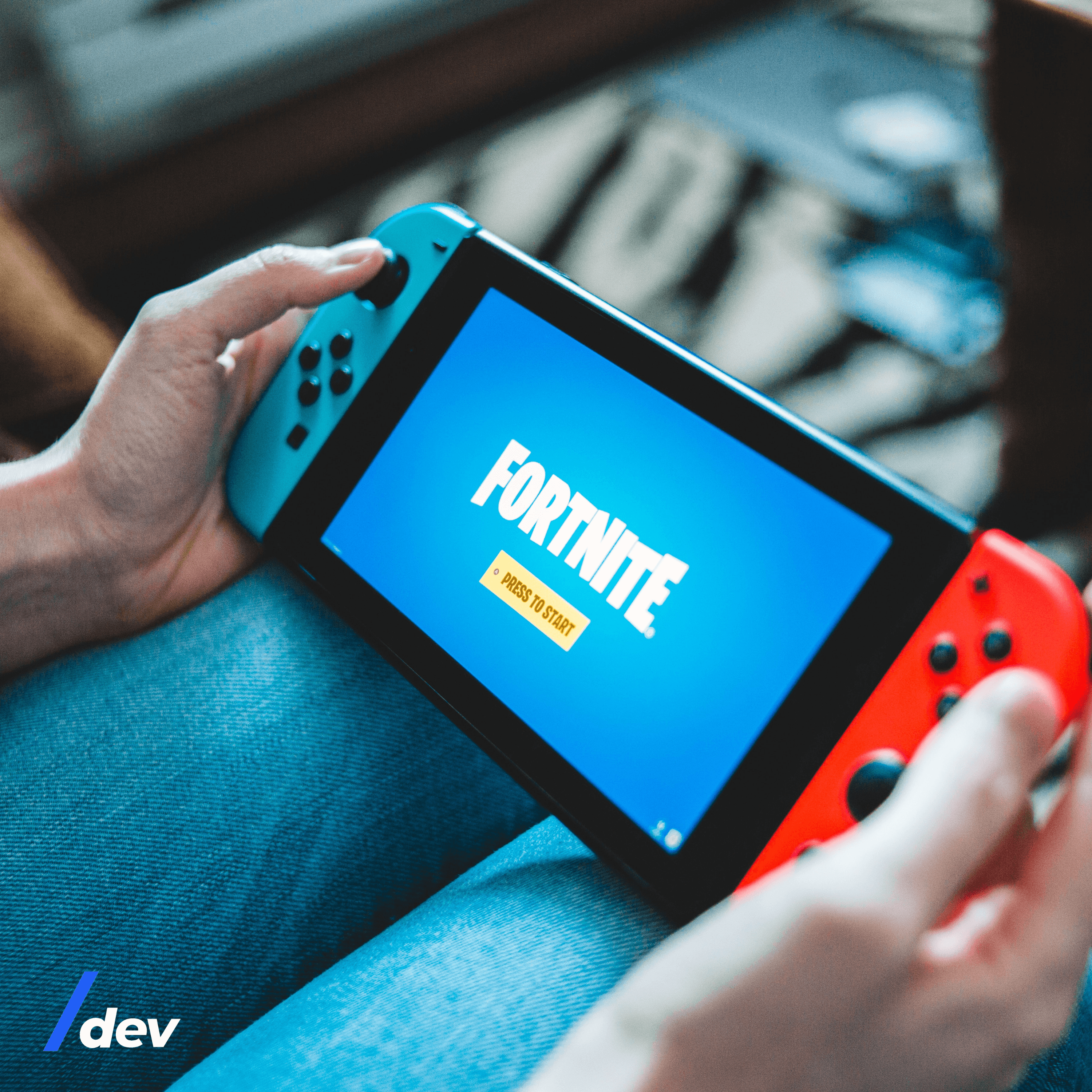Software Services
For Companies
For Developers
Products
Portfolio
Build With Us
Build With Us
Get Senior Engineers Straight To Your Inbox

Every month we send out our top new engineers in our network who are looking for work, be the first to get informed when top engineers become available

At Slashdev, we connect top-tier software engineers with innovative companies. Our network includes the most talented developers worldwide, carefully vetted to ensure exceptional quality and reliability.
Build With Us
The Making of Fortnite: A Phenomenon Born from Innovation and Creativity/


Introduction
Fortnite, developed by Epic Games, has taken the gaming world by storm since its release in 2017. With its unique blend of battle royale gameplay, vibrant visuals, and constant updates, Fortnite has become a cultural phenomenon and a global sensation. In this article, we delve into the captivating journey of how Fortnite was made, exploring its development details, groundbreaking features, and the impact it has had on the gaming industry.
The Birth of Fortnite
Conceptualization and Early Development
The roots of Fortnite can be traced back to the conceptualization phase at Epic Games. Inspired by sandbox survival games like Minecraft and the rising popularity of battle royale titles like PlayerUnknown’s Battlegrounds, the development team set out to create a game that combined elements of exploration, resource gathering, base-building, and intense multiplayer battles.
Unreal Engine: The Foundation of Fortnite
Fortnite was built on Epic Games’ powerful game engine, Unreal Engine. Leveraging the capabilities of Unreal Engine allowed the team to create a visually stunning and highly optimized gaming experience. The engine’s versatility, scalability, and advanced features provided the necessary tools for bringing Fortnite’s world to life.
The Rise of Battle Royale

Pioneering the Battle Royale Genre
Recognizing the growing popularity of battle royale games, Epic Games made a bold decision to introduce a battle royale mode in Fortnite. This decision would prove to be a game-changer, attracting millions of players worldwide and propelling Fortnite to new heights of success.
Building the Fortnite Battle Royale Experience
The development team meticulously designed the battle royale mode, focusing on fast-paced gameplay, accessible mechanics, and a unique building system. The ability to construct structures on the fly added a new dimension to the genre, allowing players to strategize, outmaneuver opponents, and showcase their creativity.
Technical Challenges and Optimization
Scaling a game to accommodate millions of concurrent players presented technical challenges. Epic Games invested significant efforts in optimizing the game’s performance, implementing server infrastructure, and continuously improving the net code to ensure a smooth and enjoyable multiplayer experience.
Engaging the Community
Early Access and Player Feedback
Epic Games adopted an early access model for Fortnite, inviting players to join the development process and provide valuable feedback. This iterative approach allowed the development team to shape the game’s mechanics, balance, and overall experience based on the community’s preferences and suggestions.
Continuous Content Updates
One of Fortnite’s defining features is its regular content updates. Epic Games’ commitment to providing fresh and engaging content has kept players invested and excited about the game. Each season introduces new challenges, cosmetics, limited-time events, and narrative elements that drive the game’s evolving storyline.
Community Events and Collaboration
Fortnite is known for its community events that engage players worldwide. From in-game concerts featuring renowned artists to collaborations with other franchises and intellectual properties, Fortnite has become a social platform where players can gather, interact, and participate in unique experiences.
The Impact of Fortnite
Cultural Phenomenon and Esports
Fortnite’s impact extends beyond gaming, permeating popular culture, influencing dance trends, and even becoming a platform for esports competitions. The Fortnite World Cup, held in 2019, attracted millions of viewers worldwide, solidifying the game’s position as a major player in the esports scene.
Monetization and Business Model
Fortnite’s success can be attributed to its free-to-play business model and innovative monetization strategies. Through cosmetic microtransactions, players can customize their characters and express their individuality, while also supporting the ongoing development of the game.
Educational Potential
Fortnite has also found its way into educational settings, where teachers leverage its creative mode to engage students, foster collaboration, and develop critical thinking skills. The game’s open-ended nature allows educators to create interactive and immersive learning experiences.

Conclusion
The development of Fortnite stands as a testament to the power of innovation, community engagement, and adaptability. Epic Games’ dedication to creating an ever-evolving gaming experience has resonated with millions of players worldwide. As Fortnite continues to evolve, it will undoubtedly shape the future of gaming and inspire future developers.
To explore more about game development and industry trends, visit slashdev.io, a valuable resource for developers, enthusiasts, and industry professionals. Stay updated on the latest news, insights, and technical guides to enhance your understanding of the dynamic world of game development.

